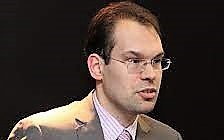IN A NUTSHELL Author's noteWhat are the implications for the universal frameworks of Health in All Policies and the Social Determinants of Health as mechanisms in-between recent geo-political tensions. And how do these (future) developments impact on health and well-being of global citizens, communities and cities in need of basic supplies, food and water?
By Dr. Tomas Mainil
Phd, Ma, Msc, PD, Senior Lecturer/Researcher and Strategic Policy Analyst Breda University of Applied Sciences, the Netherlands
Framing Health and Well-Being
A Positive Confrontation Between Life and Social Sciences as a Trigger/Engine for Public Health Challenges
An innovative combination of life and social sciences – with the aid of disruptive technologies, such as AI, Lidar and Blockchain – can generate technological approaches to cater solutions for global patients and health professionals. Both our own well-being as patients and our health systems could be influenced by a sustainable insertion of disruptive technologies, but only if these strategies are framed within the 16 UN sustainability goals.
Data and knowledge of patients and medical records which have been gathered in the past could aid to set up health data dashboards. It is useful to argue what happens with patients (micro), societies (meso) and globally (macro) in relation to technology, exemplifying two directions: one scenario (A) which is sustainable for patients and health organizations and another scenario (B) which is framed within a more market driven development.
Micro-level
Scenario A: patients will be in the possibility to alter their state of illness or disease if local governing health bodies and organizations implement health in all policies in the near future and use disruptive technologies to support these treatment needs.
Scenario B: patients will suffer from market driven decision policies on the local level if disruptive technologies are going to enhance further commercialization of these health services.
Meso-level
Scenario A: societies should be built on sustainable and well-defined health systems and clear defined rulings. This should be in place for the near future because of climate change: this is in relation to the responsibilities of the WHO and UN and their policy making.
Scenario B: full tension in societies on commercialization of health care, medical technologies and the commercial position of MDs. This will result in more lethal damages in a dangerous societal system
Macro-level
Scenario A: the needed change in human nature/health is not to conquer but to be aware that our own conception of life is systemized and should be framed towards inclusiveness. Inclusiveness could mean a new road to dignified social and human capital, where also sustainable AI could enrich our joint goals as a society and global community.
Scenario B: Confrontations/economic tensions in healthcare could lead to lost lives, poor patient health trajectories and even worse: a lost sense of urgency.
It is clear that the UN and WHO should take responsibility as trans-national organizations to strive for universal coverage, to sustain support for local and global public health challenges and envision a path of policies as enablers for the urgent benefits for our growing populations across a globalized health and well-being system. Disruptive technologies should never shut down our human approach towards health, but are necessary to support decent public healthcare, on a local and global level.
